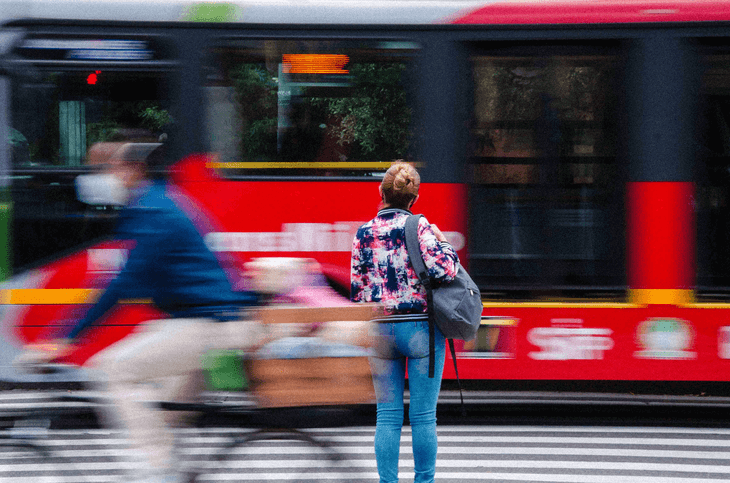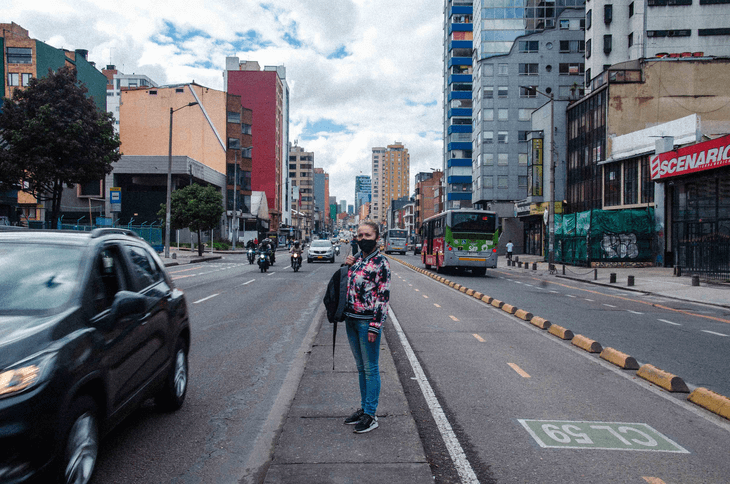In Latin America, domestic workers represent a significant segment of the female workforce, with one in five women involved in this field. It's estimated that approximately 14 million people are employed in paid domestic work across the region, with an overwhelming 91% being women. Official figures suggest that Colombia alone has anywhere between 700,000 and 1,000,000 domestic workers contributing to this total.
The domestic workers, the majority of whom live in low-income neighbourhoods, are required to travel to middle and high-income residential areas for their employment. However, the current transportation infrastructure severely falls short of accommodating their needs, resulting in a multitude of challenges.
This issue first came to the attention of Valentina Montoya-Robledo in 2014 when she was a S.J.D. student at Harvard Law School. Recognizing the plight of millions of women in the region, Montoya-Robledo decided to merge her prior experience in gender research and activism with urban mobility.

Long hours and high cost of travel
Based on Montoya-Robledo and German Escovar’s research from Bogotá's 2015 Mobility Survey, these workers have the longest travel times compared to other urban occupations. Subsequent interviews with domestic workers revealed that some endure seven hours of daily commuting in Bogotá, six in Lima, five in São Paulo, and four in Medellín.
Another major hurdle is the steep cost of commuting. In Lima, domestic workers must spend 36% of their income on commuting, and in Medellín, the figure stands at 28%.
Risks and adversities
In addition to these issues, they face numerous societal and environmental hazards such as racial discrimination, gender-based violence, crime, road safety issues, and excessive exposure to particulate matter. These commuting difficulties also hinder their access to leisure, educational and employment opportunities, political participation, and impact their family dynamics.
Additionally, the historical failure of local planning authorities to recognize domestic work as a legitimate form of employment results in a lack of efficient public transit and pedestrian routes connecting residential and work areas. Moreover, the predominant association of domestic workers with private life leads to the neglect of their public participation and limits their 'Right to the City'.
The Journey of Invisible Commutes
Post studying, Montoya-Robledo, along with musician and cultural manager Andrés González, and documentary filmmaker Daniel Gómez, embarked on the project Invisible Commutes. The project aims not only to shine a spotlight on the unheard voices of local experts, but more importantly, the testimonies of domestic workers who endure these taxing experiences daily. The overarching objective of the project is to ensure city planning includes these historically excluded individuals, ensuring they are no longer invisible commuters.
Aiming for Inclusivity: transforming city planning for domestic workers
Between 2014-2020, qualitative and quantitative research was conducted in Bogotá, Medellín, and Sao Paulo involving interviews with domestic workers, employers, experts, and transportation planners, alongside social cartography and participant observation. Montoya-Robledo collaborated with transportation engineers to analyse mobility surveys, GPS data, and create GIS maps of the commutes.
In 2019, a documentary teaser was filmed in Medellín. The transmedia project, including a website, was launched in 2020. Over the next three years, three seasons of a podcast have been released. They featured interviews with domestic workers across Colombia, Peru, and Mexico, discussing their experiences, challenges and possible solutions on mobility infrastructure projects in their cities. A collaboration was also established with the Women Centric Transport podcast in South Africa to discuss the mobility issues faced by domestic workers.

Expanding Horizons: Empowering Domestic Workers for a Better Future
The project has successfully expanded to a number of cities in Colombia, including Manizales, Cali, Neiva, Apartadó, and Cartagena, as well as Huixquilucan in Mexico and Lima in Perú.
In recognition of its impact, the project has received invitations to engage with local governments worldwide, demonstrating its relevance on a global scale. Additionally, the project aims to expand its reach to African cities, with initial contact already made with Cape Town in South Africa, where the collection and publication of testimonies are planned to further amplify the project's impact.
Looking ahead, as part of the project's ongoing efforts, there are plans to finish and launch a documentary in key locations across the Global North and South, providing an impactful platform to showcase the project's work and its significance.
Get Involved!
The information for this article was provided by use community member Valentina Montoya-Robledo. To learn more about the Invisible Commutes project visit the website and follow the project on twitter.
References:
District Mobility Secretariat of Bogotá. (2015). Mobility Survey. https://drive.google.com/file/d/0ByNoeWkPXuHpakpSeFVOdnBsQ3c/view
International Labour Organization. (2021). Making Decent Work a Reality for Domestic Workers: Progress and prospects ten years after the adoption of the Domestic Workers Convention, 2011 (No. 189).
Further Reading and watching:
Remarkable Feminist Voices in Transport Publication
Women Centric Transport Podcast